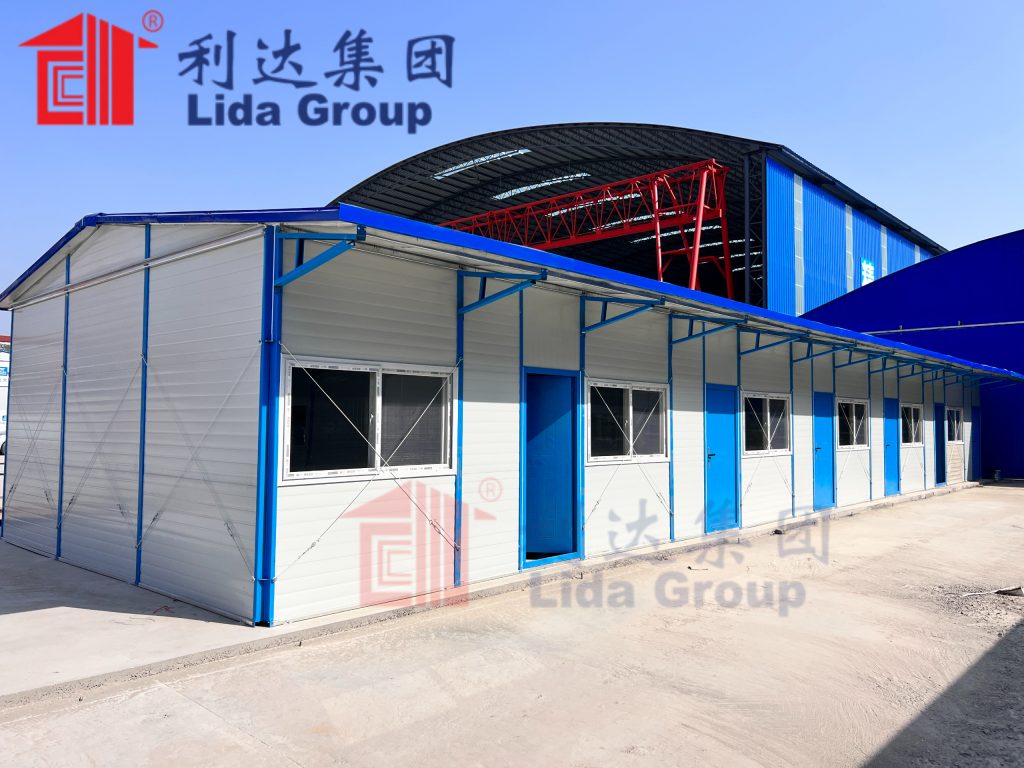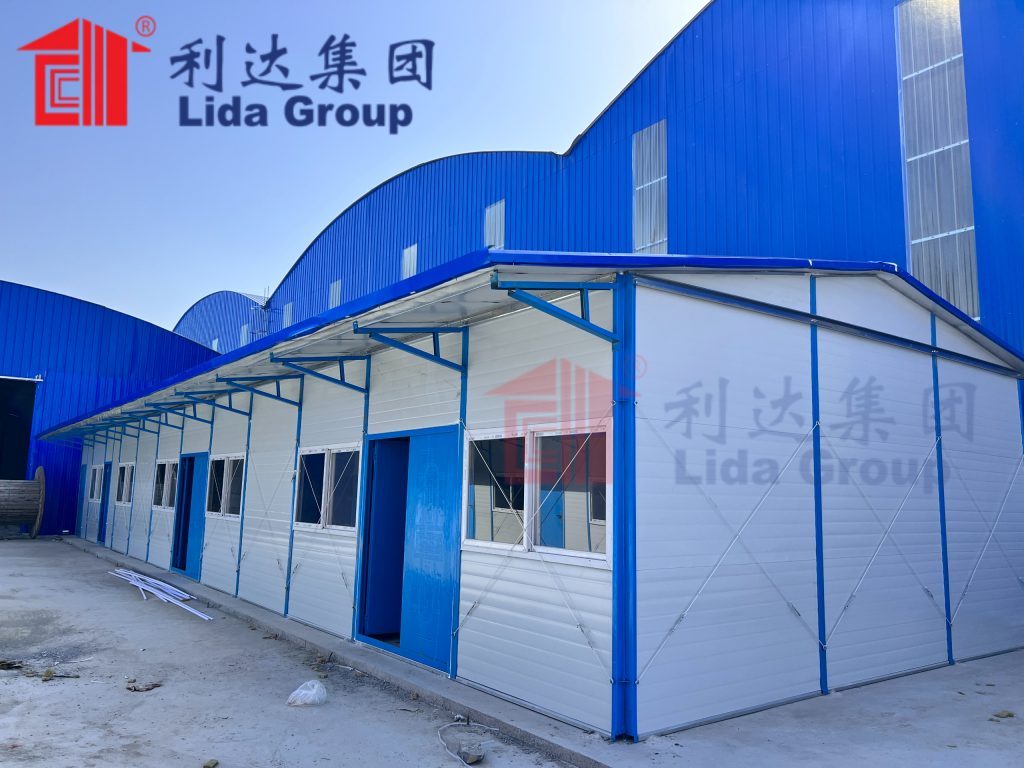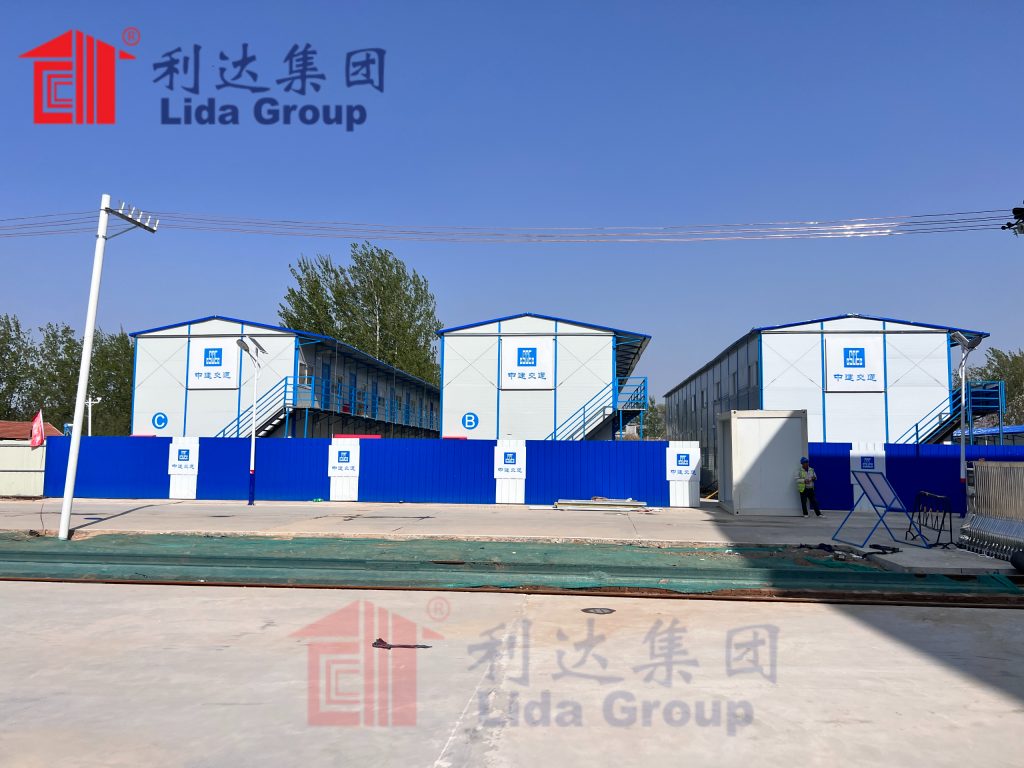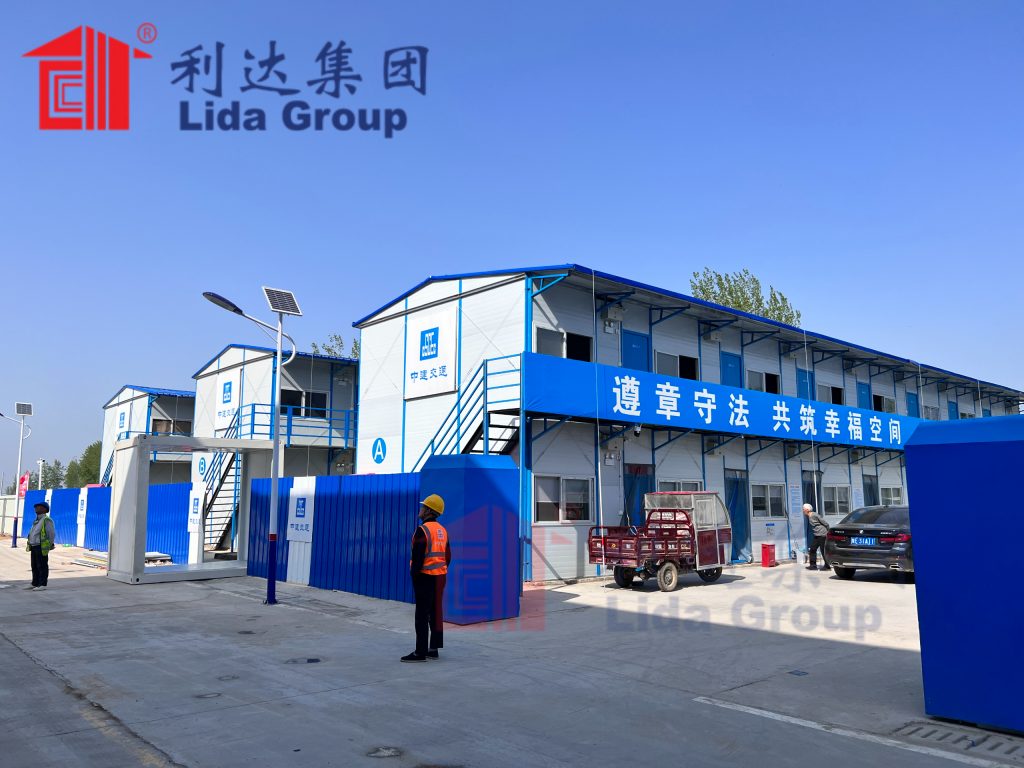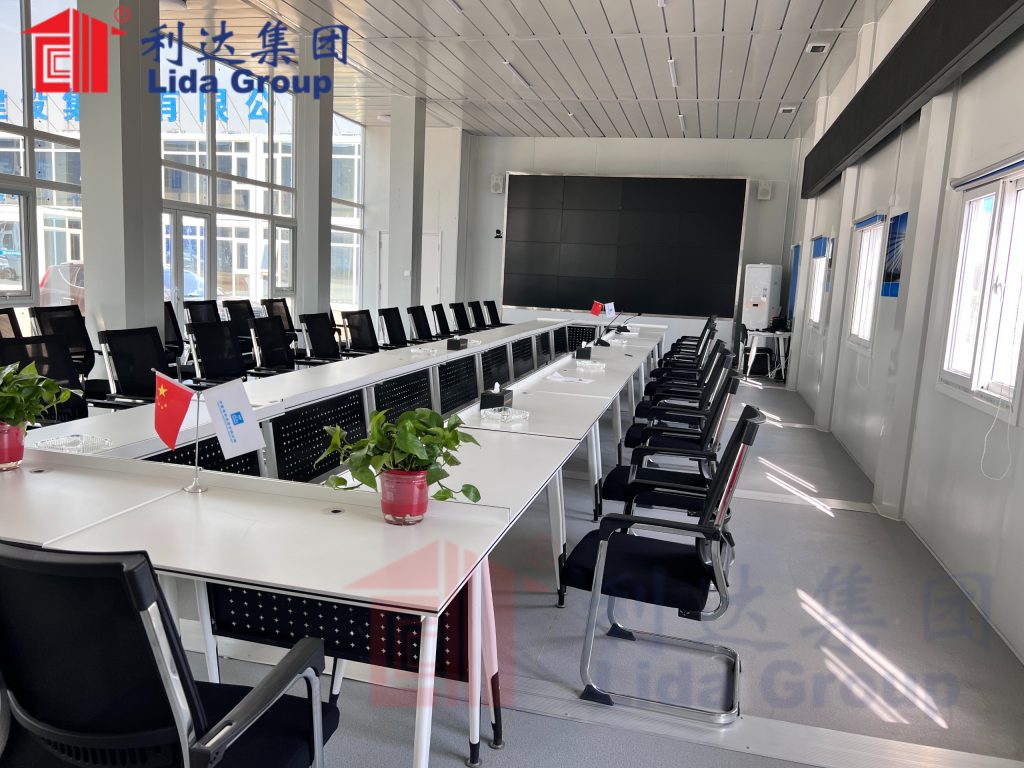Introduction: Embracing Urban Flexibility with Prefab Container Homes
In today’s rapidly urbanizing world, cities are facing unprecedented challenges in accommodating growing populations while maintaining environmental sustainability. The quest for flexible, efficient, and eco-friendly housing solutions has never been more critical. Enter prefab container homes—a revolutionary concept that transforms shipping containers into livable spaces, offering unparalleled flexibility in urban areas. Among the pioneers in this field is Lida Group, whose new prefab building technology is setting new standards for movable accommodation solutions. This article delves into how Lida Group’s innovations are enhancing the adaptability and sustainability of urban living environments, providing a glimpse into the future of urban housing.
### New Prefab Building Technology by Lida Group
Lida Group’s latest advancement in prefab building technology represents a significant leap forward in the realm of movable accommodations. At the heart of their innovation lies the utilization of advanced sandwich panel systems, which combine durability, thermal efficiency, and ease of assembly. Sandwich panels consist of two outer layers of metal sheets bonded to a core of insulating material, typically polyurethane or mineral wool. These panels not only offer superior insulation properties but also contribute to the structural integrity of the buildings, ensuring they can withstand various environmental conditions.
One of the standout features of Lida Group’s technology is its modular design. Each unit is constructed off-site under controlled factory conditions, allowing for precise manufacturing and quality control. Once completed, these modules can be easily transported to their final location and assembled quickly, often within days rather than weeks or months. This rapid deployment capability is particularly valuable in urban settings where space is at a premium and construction timelines are tight.
Moreover, Lida Group incorporates smart technologies into their prefab buildings, enabling residents to manage energy consumption, security, and climate control through integrated digital platforms. Features such as solar panels, rainwater harvesting systems, and energy-efficient appliances further enhance the sustainability of these structures, aligning with global efforts to reduce carbon footprints.
The versatility of Lida Group’s prefab technology allows for customization based on specific needs, whether it be for individual residences, commercial spaces, or temporary shelters. By offering a range of configurations and sizes, they cater to diverse urban scenarios, from high-density apartment blocks to standalone office units. As cities continue to evolve, Lida Group’s innovative approach ensures that urban dwellers have access to flexible, sustainable, and affordable housing options that meet the demands of modern life.
Enhancing Flexibility in Urban Areas
The flexibility offered by Lida Group’s prefab container homes addresses several pressing issues faced by urban planners and residents alike. In densely populated cities, the ability to quickly deploy housing solutions without extensive site preparation is invaluable. For instance, in areas experiencing rapid population growth due to economic opportunities or migration, traditional construction methods may fall short in terms of speed and cost-effectiveness. Lida Group’s prefab buildings can be rapidly assembled to provide immediate relief, offering both temporary and permanent housing options.
Another area where this flexibility shines is in disaster response. Natural disasters like earthquakes, floods, and hurricanes often displace large numbers of people, necessitating swift action to provide safe shelter. The portability and ease of assembly of prefab container homes make them ideal for emergency situations, allowing aid organizations to respond promptly and efficiently. Moreover, these structures can be adapted for various uses beyond housing, including medical facilities, schools, and community centers, thereby supporting broader recovery efforts.
Urban regeneration projects also benefit from the adaptability of prefab technology. As cities strive to revitalize underutilized areas, the ability to construct versatile spaces that can be repurposed over time is crucial. Lida Group’s designs accommodate changing needs, whether converting residential units into commercial spaces or vice versa. This dynamic approach supports sustainable urban development by maximizing land use and minimizing waste.
Furthermore, the integration of smart home technologies enhances the functionality of these spaces. Residents can enjoy increased comfort and convenience through features such as automated lighting, temperature control, and security systems. These technological advancements not only improve the quality of life but also contribute to energy conservation, making prefab container homes an attractive option for environmentally conscious urban dwellers.
In summary, Lida Group’s prefab building technology offers a flexible solution that meets the diverse needs of urban areas. From addressing housing shortages and responding to emergencies to supporting long-term urban planning initiatives, these innovative structures play a pivotal role in shaping the future of urban living. Their adaptability, combined with sustainability and technological integration, positions them as a key player in the ongoing evolution of cityscapes around the globe.
Benefits and Advantages
Lida Group’s prefab container homes bring numerous advantages that make them an appealing choice for both developers and residents. One of the most notable benefits is cost-effectiveness. Traditional construction methods often involve substantial upfront costs related to materials, labor, and site preparation. In contrast, prefab buildings are manufactured in controlled environments, reducing waste and optimizing resource usage. This streamlined process translates into lower overall costs, making affordable housing more accessible.
Speed is another significant advantage. With conventional building techniques, projects can take months or even years to complete. However, Lida Group’s prefab units can be assembled in a fraction of the time, sometimes within days. This rapid deployment capability is particularly beneficial in urban areas where time-sensitive projects are common. Whether it’s addressing housing shortages, launching temporary events, or responding to emergencies, the ability to quickly erect functional spaces is invaluable.
Sustainability is at the core of Lida Group’s mission. Their prefab container homes are designed with eco-friendly materials and practices in mind. Sandwich panels used in construction provide excellent insulation, reducing the need for artificial heating and cooling. Additionally, many components are recyclable or made from recycled materials, minimizing environmental impact. Energy-efficient appliances and renewable energy sources, such as solar panels, further enhance the green credentials of these structures.
Durability is another key feature. Shipping containers are built to withstand harsh maritime conditions, making them inherently robust. When converted into living spaces, they maintain their strength and resilience, capable of withstanding extreme weather and seismic activities. This durability ensures longevity, reducing maintenance requirements and extending the lifespan of the buildings.
Customization options add to the appeal of Lida Group’s prefab homes. Clients can choose from a variety of layouts, finishes, and amenities to suit their specific needs. Whether it’s creating a cozy studio apartment or a spacious family home, the modular design allows for endless possibilities. This flexibility extends beyond residential use; commercial spaces, offices, and public facilities can all be tailored to meet unique requirements.
Lastly, the mobility of these structures provides unprecedented flexibility. Units can be easily relocated to different sites as needed, adapting to changing urban landscapes. This portability is especially advantageous for temporary events, seasonal residences, or mobile workspaces. It also opens up opportunities for creative urban planning, allowing cities to experiment with new configurations and optimize space usage dynamically.
In essence, Lida Group’s prefab container homes offer a compelling combination of affordability, speed, sustainability, durability, customization, and mobility. These attributes make them a versatile and attractive solution for addressing the complex challenges of modern urban living.
Practical Applications and Case Studies
The versatility of Lida Group’s prefab container homes makes them suitable for a wide array of applications, ranging from residential developments to commercial spaces and emergency shelters. Real-world examples demonstrate the effectiveness of these structures in meeting diverse needs.
#### Residential Developments
In densely populated urban areas, Lida Group’s prefab homes offer a viable solution for addressing housing shortages. A prime example is the “Urban Village” project in Shanghai, where multiple container units were stacked and arranged to create a vibrant community of small apartments. Each unit was customized to include essential amenities such as kitchens, bathrooms, and living spaces, providing comfortable and affordable housing for young professionals and students. The modular nature of these units allowed for easy expansion as demand grew, showcasing the scalability of prefab technology.
#### Commercial Spaces
Prefab container homes are not limited to residential use; they can also serve as functional commercial spaces. A noteworthy case is the “Pop-Up Market” initiative in London, where entrepreneurs utilized Lida Group’s portable units to set up temporary shops and food stalls. These modular spaces could be easily transported and reconfigured, allowing vendors to participate in various markets and events throughout the city. The quick setup and teardown process minimized disruption and maximized business opportunities, highlighting the adaptability of these structures for retail purposes.
#### Emergency Shelters
In times of crisis, the rapid deployment capabilities of prefab container homes prove invaluable. After a devastating earthquake struck Nepal in 2015, Lida Group partnered with humanitarian organizations to provide emergency shelters. These units were swiftly transported to affected areas and assembled on-site, offering immediate relief to displaced families. Equipped with basic necessities such as beds, cooking facilities, and sanitation systems, these shelters provided a safe haven during the recovery phase. The durability and weather resistance of the containers ensured that they could withstand harsh conditions, underscoring their reliability in emergency situations.
#### Public Facilities
Beyond housing and commerce, Lida Group’s prefab technology extends to public infrastructure. In remote rural areas lacking access to education, the company collaborated with local governments to build portable classrooms. These units were designed to be energy-efficient and equipped with necessary educational tools, bringing learning opportunities to underserved communities. Similarly, healthcare facilities in disaster-stricken regions benefited from temporary clinics constructed using prefab container technology. These clinics provided essential medical services, demonstrating the potential of these structures to support broader societal needs.
Mixed-Use Developments
Mixed-use developments represent another innovative application of Lida Group’s prefab homes. In Amsterdam, a mixed-use project incorporated residential, commercial, and communal spaces within a single complex. The modular design allowed for seamless integration of different functions, creating a cohesive environment that fostered community interaction. Residents enjoyed private living quarters while having access to shared amenities like gardens, gyms, and co-working spaces. This holistic approach exemplifies how prefab technology can enhance urban living by promoting social cohesion and resource efficiency.
These case studies illustrate the broad applicability of Lida Group’s prefab container homes across various sectors. Whether it’s addressing housing needs, facilitating business operations, providing emergency relief, or supporting public services, these structures offer flexible, sustainable, and efficient solutions that adapt to evolving urban landscapes. Through continued innovation and collaboration, Lida Group continues to push the boundaries of what is possible in the realm of movable accommodation.
### Market Impact and Reception
The introduction of Lida Group’s prefab container homes has had a profound impact on the housing market, garnering widespread attention and positive reception from industry experts, consumers, and policymakers alike. One of the most significant outcomes has been the democratization of housing options, making affordable and sustainable living spaces accessible to a broader demographic. The cost-effectiveness of these structures, coupled with their rapid deployment capabilities, has addressed longstanding issues of housing shortages and inflated real estate prices in urban areas.
Customer testimonials highlight the transformative power of Lida Group’s technology. For instance, in Sydney, Australia, a young couple who struggled to find affordable housing in the city center found a perfect solution in a prefab container home. They praised the ease of customization and the ability to create a personalized living space that met their specific needs and budget. Another customer in Berlin highlighted the environmental benefits, noting that the energy-efficient design significantly reduced their utility bills while contributing to a greener lifestyle.
Market analysts have identified several trends driven by the success of Lida Group’s prefab technology. One notable trend is the shift towards modular construction, which is expected to grow exponentially as cities seek more efficient building solutions. The flexibility and scalability of prefab homes allow for rapid adaptation to changing urban dynamics, making them ideal for both temporary and permanent housing needs. Additionally, the emphasis on sustainability resonates with an increasingly eco-conscious consumer base, driving demand for green housing options.
Policymakers are also taking notice, with some cities implementing incentives and regulations to encourage the adoption of prefab container homes. For example, certain municipalities offer tax breaks or expedited permitting processes for projects utilizing sustainable building practices. These initiatives aim to promote urban renewal and address housing crises while fostering innovation in the construction industry.
In conclusion, Lida Group’s prefab container homes have not only filled a critical gap in the housing market but have also set new standards for affordability, sustainability, and flexibility. Their innovative approach continues to inspire and influence the broader construction sector, paving the way for a more adaptable and resilient urban future.
### Design Considerations and Practical Applications
Designing prefab container homes requires careful consideration of architectural principles, interior design elements, and user comfort to ensure functionality and aesthetic appeal. Architecturally, Lida Group prioritizes modularity and adaptability. The use of standardized dimensions allows for easy stacking and configuration, creating versatile layouts that can be adjusted based on specific needs. Open floor plans maximize space utilization, while strategically placed windows and skylights bring in natural light, enhancing the sense of openness and connection to the outdoors.
Interior design plays a crucial role in transforming industrial containers into inviting living spaces. High-quality finishes and thoughtful material choices contribute to both the aesthetics and durability of the interiors. Sustainable materials such as bamboo flooring, reclaimed wood, and low-VOC paints are favored for their eco-friendliness and health benefits. Customizable options enable residents to personalize their spaces, from selecting color schemes to choosing furniture layouts, fostering a sense of ownership and satisfaction.
Comfort features are integral to the design process. Superior insulation provided by sandwich panels ensures a stable indoor temperature year-round, reducing reliance on artificial heating and cooling. Advanced HVAC systems and energy-efficient appliances further enhance comfort while minimizing energy consumption. Smart home technologies can be seamlessly integrated, offering residents control over lighting, security, and climate settings through intuitive interfaces. These features not only improve daily living but also contribute to the overall sustainability of the structure.
Practical applications extend beyond residential use. In commercial settings, prefab container homes can be adapted for offices, retail spaces, and hospitality venues. Modular design allows for quick reconfiguration to accommodate changing business needs. For example, a startup might initially occupy a single unit before expanding into additional modules as the company grows. In public spaces, these structures serve as pop-up libraries, art galleries, or community centers, fostering engagement and creativity within neighborhoods.
Overall, the design considerations for prefab container homes emphasize creating spaces that are not only functional and aesthetically pleasing but also sustainable and adaptable. By focusing on user comfort and practicality, Lida Group continues to innovate, offering versatile solutions that cater to diverse lifestyles and urban environments.
Future Trends and Potential Developments
Looking ahead, the future of prefab container homes promises exciting advancements that will further enhance their functionality and appeal. Technological innovations are poised to revolutionize the construction and operation of these structures, making them even more sustainable and user-friendly. One promising area is the development of smart materials that can self-regulate temperature, humidity, and light levels, optimizing energy efficiency and occupant comfort. Advances in additive manufacturing (3D printing) could enable the creation of custom components on-site, reducing transportation costs and improving design flexibility.
Energy generation and storage technologies will play a critical role in the evolution of prefab homes. Integration of solar panels, wind turbines, and battery storage systems will allow these structures to operate off-grid, reducing reliance on traditional power sources and lowering carbon footprints. Innovations in water management, such as greywater recycling and rainwater harvesting, will further enhance sustainability by conserving resources and reducing waste.
The Internet of Things (IoT) will continue to transform how prefab container homes are managed and lived in. IoT-enabled devices will provide real-time data on energy usage, environmental conditions, and system performance, enabling proactive maintenance and operational optimization. Residents will have greater control over their living environments through voice-activated assistants and mobile apps, creating smarter, more connected homes.
Modular architecture will see new possibilities with the advent of adaptive systems that can reconfigure themselves based on user preferences or external conditions. For example, walls that can expand or contract, or roofs that adjust to sunlight angles, will offer unprecedented flexibility in space utilization. These advancements will cater to the dynamic needs of urban dwellers, supporting lifestyles that prioritize adaptability and sustainability.
As urban areas become denser and more complex, the role of prefab container homes in shaping future cities will be increasingly significant. Their inherent flexibility and sustainability make them ideal candidates for addressing the challenges of urbanization, from housing shortages to environmental degradation. By embracing these emerging trends, Lida Group and other innovators in the field are paving the way for a new era of urban living, characterized by efficiency, adaptability, and environmental stewardship.
### Conclusion: The Future of Urban Housing
In conclusion, Lida Group’s pioneering prefab building technology is reshaping the landscape of urban housing, offering flexible, sustainable, and efficient solutions that meet the evolving needs of modern cities. The combination of cost-effectiveness, rapid deployment, and customizable designs makes these structures highly adaptable to various urban scenarios, from addressing housing shortages to supporting emergency responses and urban regeneration projects. The integration of smart technologies and sustainable practices further enhances their appeal, promoting a greener and more connected way of living.
As we look toward the future, the potential for prefab container homes remains vast. Emerging trends in smart materials, energy generation, and IoT integration promise to elevate their functionality and user experience, making them indispensable assets in the pursuit of resilient and sustainable urban environments. By continuing to innovate and collaborate, companies like Lida Group are setting the stage for a new chapter in urban development—one that prioritizes adaptability, efficiency, and environmental responsibility.
Embracing these advancements paves the way for cities that are not only more livable but also more resilient in the face of challenges such as climate change, population growth, and resource scarcity. The journey toward a sustainable urban future begins with visionary solutions like those offered by Lida Group, inspiring us to rethink how we build and inhabit our cities. Together, we can create vibrant, inclusive, and environmentally conscious communities that thrive well into the future.
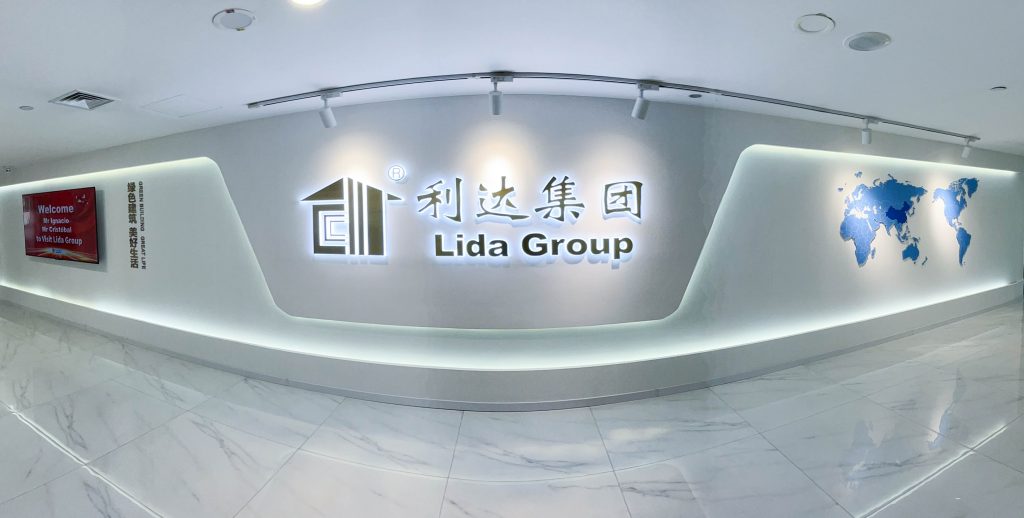
Related news
-
Mobile Container Apartments by Lida Group Provide Quick and Reliable Housing for Urban Expansion
2025-03-12 15:39:15
-
Innovative Design Meets Functionality: Lida Group’s Modular Prefab Houses Transform the Future of Housing
2025-02-12 16:30:55
-
Lida Group Innovates with Sustainable Sandwich Panel Houses for Rapid Movable Accommodation Solutions Worldwide
2025-02-13 11:55:50
contact us
- Tel: +86-532-88966982
- Whatsapp: +86-13793209022
- E-mail: sales@lidajituan.com


